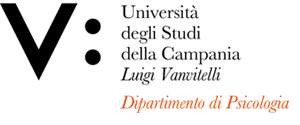Olimpia MATARAZZO
Insegnamento di PSICOLOGIA DELLE EMOZIONI
Corso di laurea magistrale in PSICOLOGIA DEI PROCESSI COGNITIVI
SSD: M-PSI/01
CFU: 4,00
ORE PER UNITÀ DIDATTICA: 28,00
Periodo di Erogazione: Secondo Semestre
Italiano
| Lingua di insegnamento | Italiano |
| Contenuti | Parte I |
| Testi di riferimento | Parte I: |
| Obiettivi formativi | Il corso, articolato in due parti, si propone di fornire una panoramica aggiornata della ricerca sulle emozioni. In particolare si focalizzerà sulle funzioni delle emozioni e sulla relazione fra emozioni e cognizione in due ambiti cruciali: la regolazione delle emozioni e la moralità. |
| Prerequisiti | Conoscenza di base della Psicologia generale |
| Metodologie didattiche | Lezioni frontali con modalità interattiva: gli allievi parteciperanno alle discussioni in aula e avranno la possibilità di presentare e discutere gli articoli proposti. |
| Metodi di valutazione | Esame orale |
| Altre informazioni | Saranno disponibili le diapositive delle lezioni, che costituiscono parte integrante del programma d’esame. |
| Programma del corso | Già descritto |
English
| Teaching language | Italian |
| Contents | Part I |
| Textbook and course materials | Part I: |
| Course objectives | The course, divided in two parts, aims to provide an overview of research on emotion. More specifically, it will focus on the functions of emotion and on the relationship between emotion and cognition in two crucial domains: emotion regulation and morality. |
| Prerequisites | Basic knowledge of general psychology |
| Teaching methods | Lectures with interactive mode: students will participate in class discussions and present oral reports of the proposed papers. |
| Evaluation methods | Oral exam |
| Other information | The course slides, which are an integral part of the exam program, will be available. |
| Course Syllabus | Already described |








